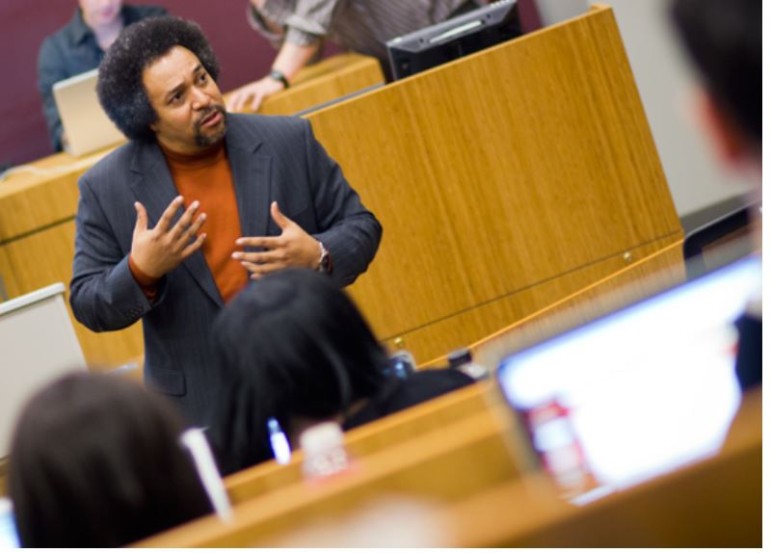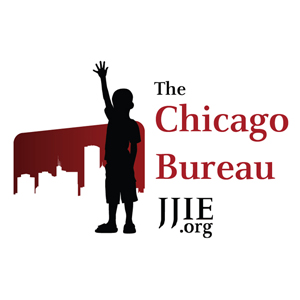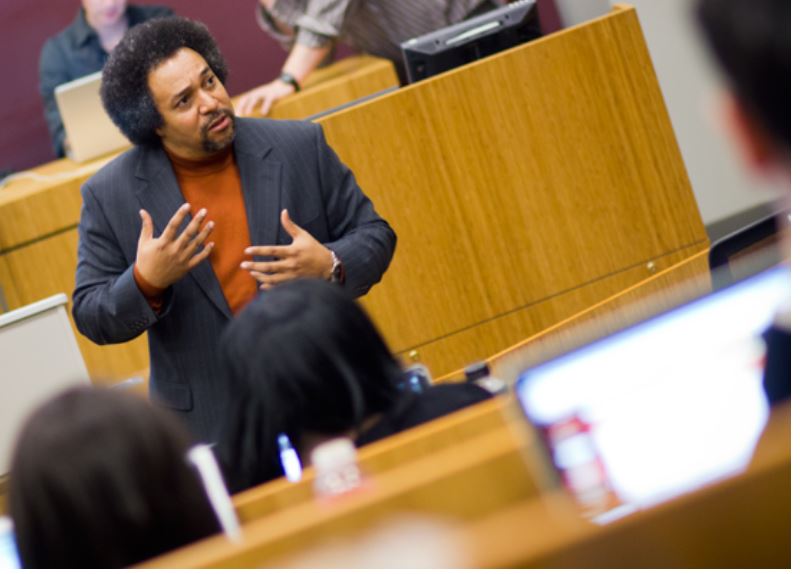
Drexel University, Earle Mack School of Law
Earle Mack School of Law
Gangsta rap, the form of hip-hop music containing lyrics about urban crime and violence, should really be viewed as a commentary on how to address racist law enforcement in the inner city. But instead, the genre’s hardcore style, spurred by the record industry, has widely stereotyped African-American males as criminals.
This was the theme of an October lecture at the Chicago Bar Association by Donald F. Tibbs an associate professor of law at Drexel University, specializing in race, civil rights and criminal procedure. Professor Tibbs’ talk was titled “Hip Hop and Its Influence on Criminal Law.”
“I’m plagued by…how art is now being used as a site of dispossession for young black men,” he said. “More specifically I’m concerned about how the state is using lyrics from rap music to prosecute black males in criminal trials.”
According to Tibbs, pop culture, extending from rap music to TV crime dramas like the “Law & Order” franchise, “Detroit 1-8-7,” “Gangland,” “Cops” and “Dog the Bounty Hunter,” promotes an idea that “criminal defendants are always guilty until proven innocent through forensic evidence.”
Moreover, he noted, “Each of these iconic pop-culture shows features the same story line, meaning that people who are black, brown and immigrant is the baseline for establishing criminality.”
 To illustrate his point, Tibbs used the 2012 conviction of Darin K. Wright for third-degree murder in a case in which Wright shot a man following an argument on a Philadelphia street. On appeal, the conviction, along with a 20-40 year prison sentence, was upheld last February by the Superior Court of Pennsylvania.
To illustrate his point, Tibbs used the 2012 conviction of Darin K. Wright for third-degree murder in a case in which Wright shot a man following an argument on a Philadelphia street. On appeal, the conviction, along with a 20-40 year prison sentence, was upheld last February by the Superior Court of Pennsylvania.
During the murder trial, Tibbs gave testimony regarding a rap video made by Wright after the shooting. But during his recent lecture, he said of the trial’s outcome: “Pro-state anti-black racism is fundamentally reliant upon criminological tropes (images) widely distributed throughout our society. And these tropes are so basic and so deeply ingrained in our everyday parlance that while it took preparing my testimony and analyzing gangsta rap lyrics to fully appreciate it, it certainly did not take testifying for the jurors to discern race and crime and guilt in legal terms.”
During the conclusion of his talk, Tibbs did say: “I hold rap artists accountable, and I don’t have a problem with that. [But]…we should be less concerned with the lyrics themselves because that is socially distracting. We should be channeling our forces to fix the social, political, economic and legal problems that force the message in the first place.”
He said, “Hip-hop critiques the law and talks, in many ways, about how it can be improved.”
